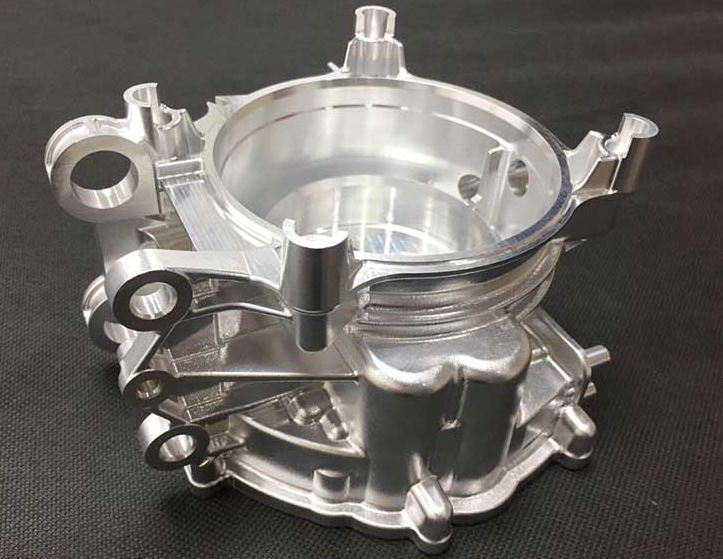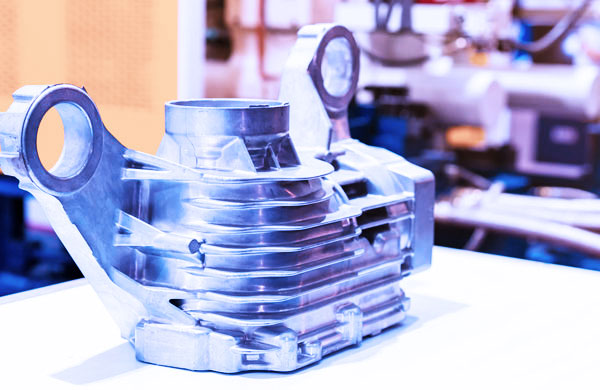How Stahl Specialty Company can Save You Time, Stress, and Money.
How Stahl Specialty Company can Save You Time, Stress, and Money.
Blog Article
What Does Stahl Specialty Company Mean?
Table of Contents6 Easy Facts About Stahl Specialty Company ExplainedHow Stahl Specialty Company can Save You Time, Stress, and Money.The Definitive Guide to Stahl Specialty CompanyNot known Details About Stahl Specialty Company The 2-Minute Rule for Stahl Specialty Company
The subtle distinction depends on the chemical web content. Chemical Contrast of Cast Aluminum Alloys Silicon advertises castability by decreasing the alloy's melting temperature and enhancing fluidness throughout casting. It plays a critical duty in enabling detailed mold and mildews to be filled precisely. In addition, silicon adds to the alloy's strength and wear resistance, making it important in applications where toughness is important, such as automotive parts and engine parts.It additionally enhances the machinability of the alloy, making it simpler to process into finished items. In this way, iron adds to the overall workability of light weight aluminum alloys.
Manganese adds to the toughness of light weight aluminum alloys and enhances workability. It is typically made use of in functioned aluminum products like sheets, extrusions, and profiles. The visibility of manganese aids in the alloy's formability and resistance to fracturing throughout fabrication processes. Magnesium is a lightweight component that offers stamina and effect resistance to light weight aluminum alloys.
Zinc enhances the castability of aluminum alloys and assists manage the solidification procedure during casting. It enhances the alloy's strength and firmness.
6 Simple Techniques For Stahl Specialty Company
Because aluminum-silicon alloys have excellent casting buildings, high gas residential or commercial properties, simple procedures, and exceptional deterioration resistance, aluminum-silicon alloys are most typically used in the die-casting sector at home and abroad. At the exact same time, aluminum-silicon alloys are likewise fairly very early and commonly identified alloys created and utilized in die-casting. After continual research and improvement, a lot of the current global mainstream aluminum-silicon alloys have actually been completed and are nothing even more than A356, A360, A380, ADC12, B390, and A413.
The main thermal conductivity, tensile toughness, return strength, and prolongation differ. Amongst the above alloys, A356 has the highest possible thermal conductivity, and A380 and ADC12 have the lowest.

The smart Trick of Stahl Specialty Company That Nobody is Talking About
In precision spreading, 6063 is appropriate for applications where intricate geometries and top notch surface area coatings are critical. Instances include telecommunication units, where the alloy's superior formability permits smooth and aesthetically pleasing designs while preserving architectural honesty. In a similar way, in the Illumination Solutions industry, precision-cast 6063 parts produce stylish and efficient lights components that require intricate forms and excellent thermal efficiency.
(https://pagespeed.web.dev/analysis/https-stahlspecialty-com/076v103385?form_factor=mobile)
The A360 exhibits exceptional prolongation, making it optimal for complicated and thin-walled elements. In accuracy spreading applications, A360 is fit for markets such as Customer Electronic Devices, Telecommunication, and Power Devices.

In precision casting, aluminum 413 shines in the Consumer Electronic Devices and Power Devices industries. It's frequently used to craft elaborate parts like smart device real estates, electronic camera bodies, and power tool coverings. Its precision is impressive, with tight tolerances approximately 0.01 mm, guaranteeing remarkable product setting up. This alloy's superior rust resistance makes it an exceptional option for exterior applications, making certain long-lasting, sturdy items in the stated industries.
The Single Strategy To Use For Stahl Specialty Company
The light weight aluminum alloy you select will significantly influence both the spreading process and the important source homes of the last item. Because of this, you must make your choice meticulously and take an informed strategy.
Determining one of the most appropriate light weight aluminum alloy for your application will indicate evaluating a large range of characteristics. These relative alloy attributes comply with the North American Die Casting Organization's guidelines, and we have actually separated them into 2 classifications. Casting Foundry. The first classification addresses alloy qualities that affect the production procedure. The 2nd covers qualities influencing the residential or commercial properties of the last product.
The alloy you select for die casting directly impacts numerous facets of the spreading process, like how easy the alloy is to function with and if it is prone to casting issues. Hot splitting, also understood as solidification cracking, is a typical die spreading problem for light weight aluminum alloys that can lead to internal or surface-level rips or cracks.
Some Ideas on Stahl Specialty Company You Need To Know
Certain light weight aluminum alloys are more vulnerable to warm splitting than others, and your choice should consider this. Another usual flaw found in the die casting of aluminum is die soldering, which is when the cast adheres to the die walls and makes ejection hard. It can harm both the cast and the die, so you should seek alloys with high anti-soldering homes.
Corrosion resistance, which is already a noteworthy attribute of light weight aluminum, can differ significantly from alloy to alloy and is a crucial characteristic to consider depending on the environmental conditions your item will be exposed to. Wear resistance is one more home commonly sought in aluminum items and can separate some alloys.
Report this page